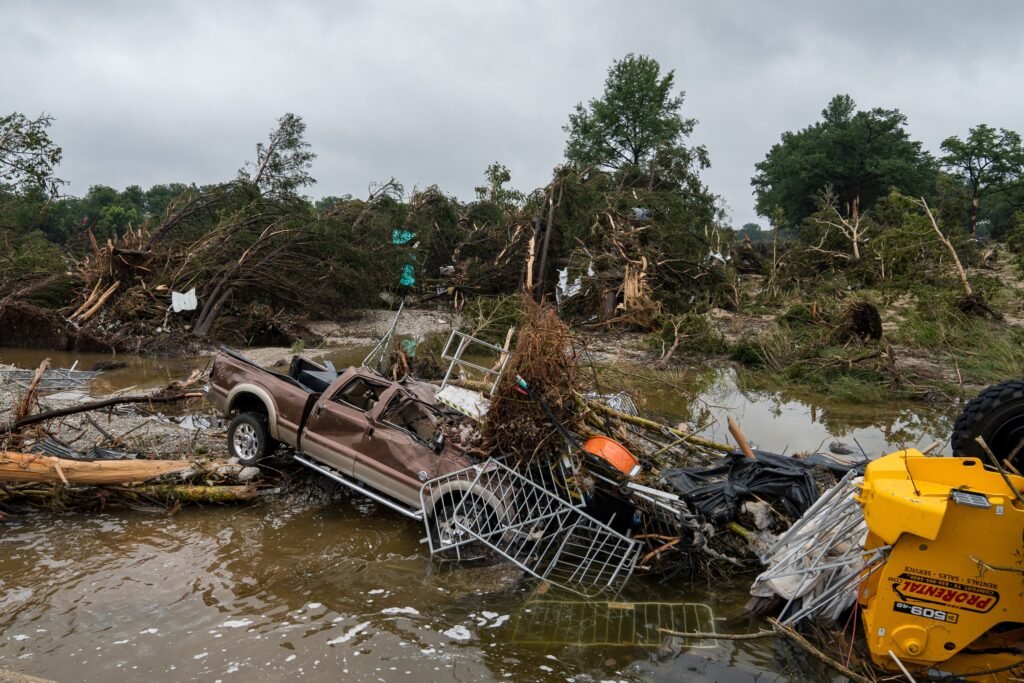Changes in Public Broadcasting Grant Management
WASHINGTON – The Corporation for Public Broadcasting (CPB) will stop managing grant programs that have historically allocated millions to local TV and radio stations for upgrades to their emergency alert systems.
This decision follows a recent vote by Republican lawmakers to redirect funds—over $1.1 billion that had been previously approved—at the request of President Donald Trump.
Established by Congress in fiscal year 2022, the Next Generation Warning System Grant Program started with around $40 million designated for the Federal Emergency Management Agency (FEMA).
Initially, FEMA planned to channel these funds to CPB, which would then assist stations in enhancing their infrastructure for better public alert dissemination. However, this process is set to change within the coming months.
A FEMA official indicated that for the current fiscal year, grants will now be allocated directly to state and tribal governments, which will support public broadcasters making improvements to emergency alert systems.
Concerns have been raised by some Democrats and Republicans regarding the impact of withdrawing CPB funding on local stations. They worry it could challenge the capacity of these stations to operate, possibly creating gaps in the national emergency alert system.
Impact on Local Public Media
CPB recently disclosed plans to halt operations later this year. It announced that it will no longer manage grant funding approved for 2023 and 2024. As of now, no decisions have been made on which applicants might receive funding in the past two years.
CPB President and CEO Patricia Harrison stated, “CPB is fully invested in the NGWS program and its mission to protect the American people. This change illustrates how withdrawing funds affects local public media stations and the communities they serve, potentially hindering their ability to ensure community safety and preparedness.”
There’s a real concern that a considerable portion of the $136 million allocated by Congress might remain unutilized.
The CPB has pointed out that FEMA needs to either fulfill its funding obligations as designed by Congress or face unspent funds from the past three budget years, which would jeopardize the acquisition of critical emergency warning equipment in rural and disaster-prone areas.
A FEMA official, when asked about the fund allocation for previous fiscal years, could not provide clear answers.
Additionally, both the White House and the Office of Management and Budget did not respond to requests for comments on the grant program.
Past Fund Allocations
- The Mid-South Pacific Communications Foundation in Cordoba, Tennessee reported receiving $1.657 million to replace a transmitter and two emergency generators for rural communities in Tennessee, Mississippi, and Eastern Arkansas.
- Blue Ridge PBS in Roanoke, Virginia received $1.122 billion to enhance broadcast infrastructure for improved signal reach in mountainous areas.
- Louisiana Public Broadcasting mentioned nearly $2 million was secured to install transmitters and update alerting equipment for KLTL-TV to enable statewide emergency message delivery.
Funding Withdrawal Concerns
In a statement this week, Kate Riley, president and CEO of American Public Television Stations, noted that CPB can no longer administer FEMA’s grant program. She urged FEMA to create a new process for distributing these funds to public broadcasters and called on Congress to restore direct funding crucial for public safety and education resources in local stations.
In early June, President Trump requested Congress to eliminate funding for public broadcasting along with several foreign aid programs, which led to a vote primarily along party lines that approved a $9.4 billion proposal later that month.
GOP Senators, except for a couple from Maine and Alaska, continued supporting similar funding cuts into July. The House also passed a revised version of the bill shortly after, sending it to Trump for his signature.







